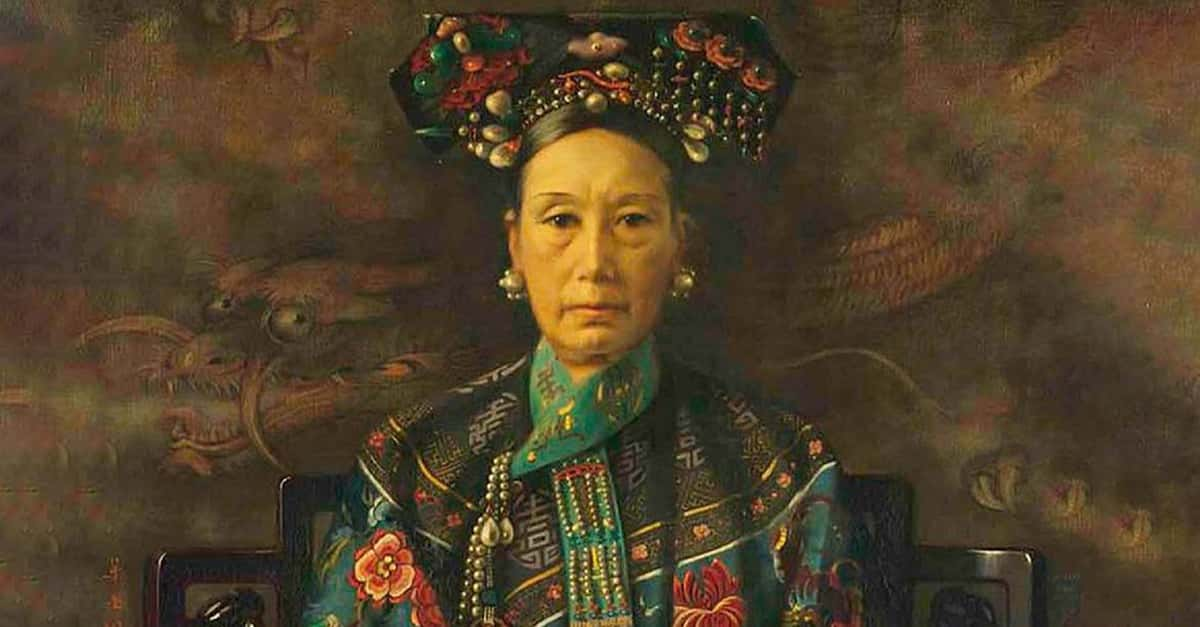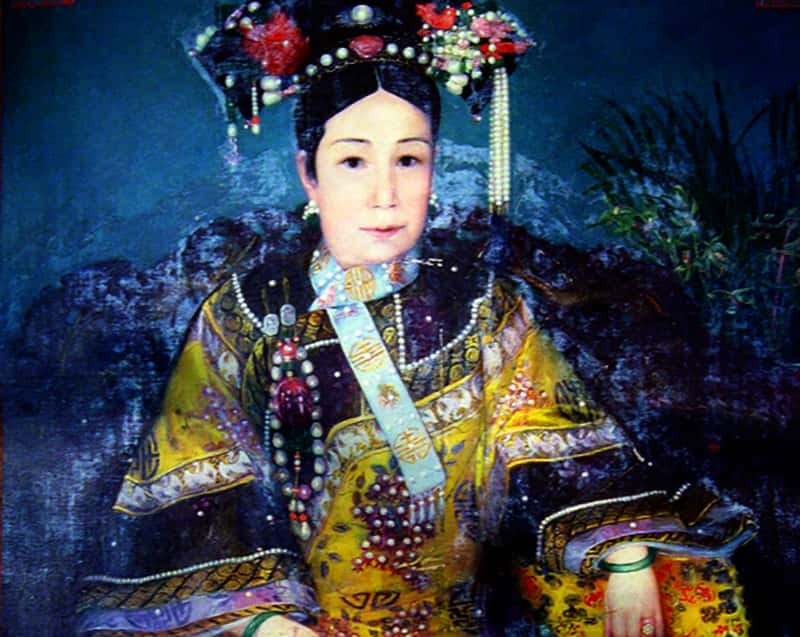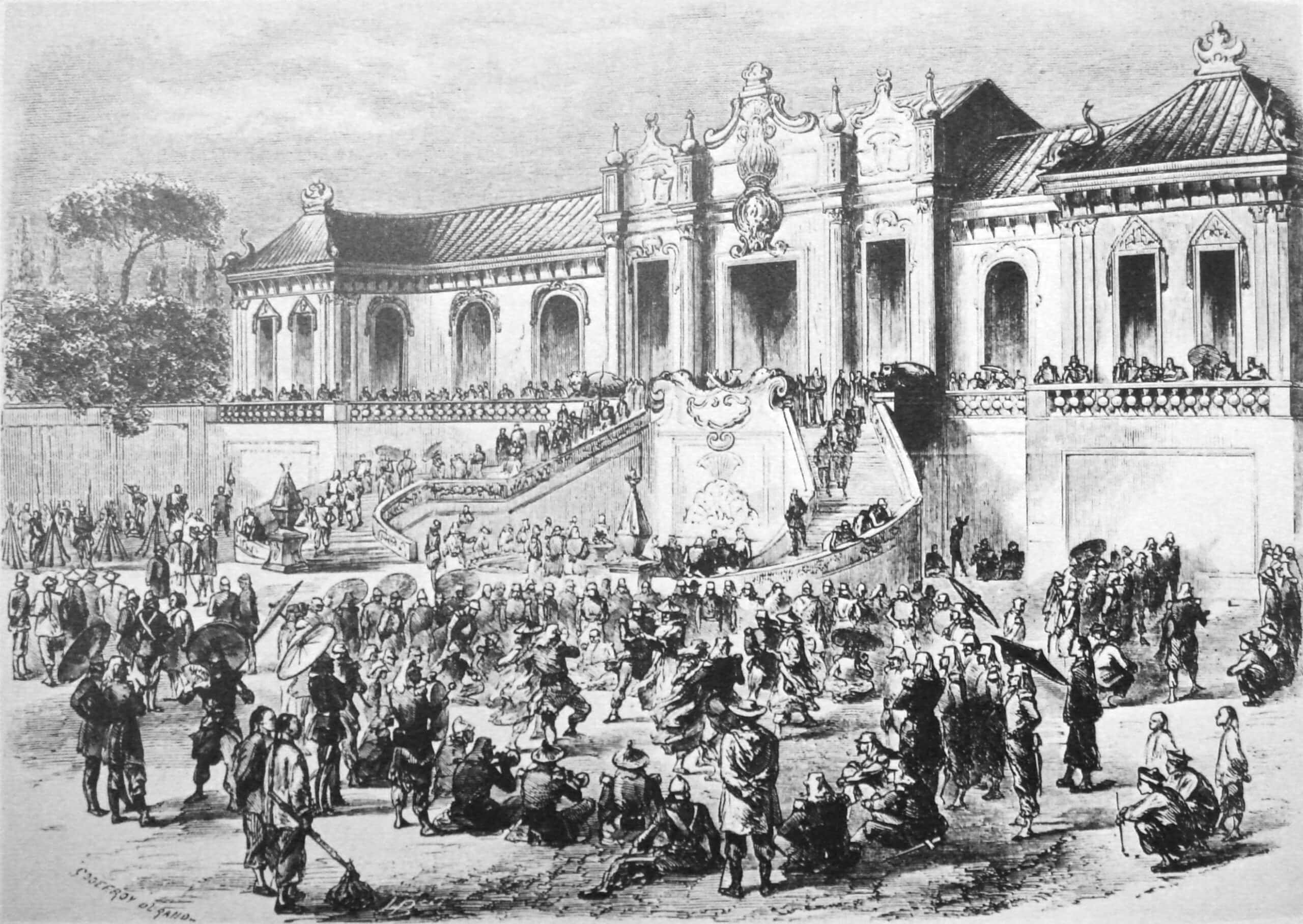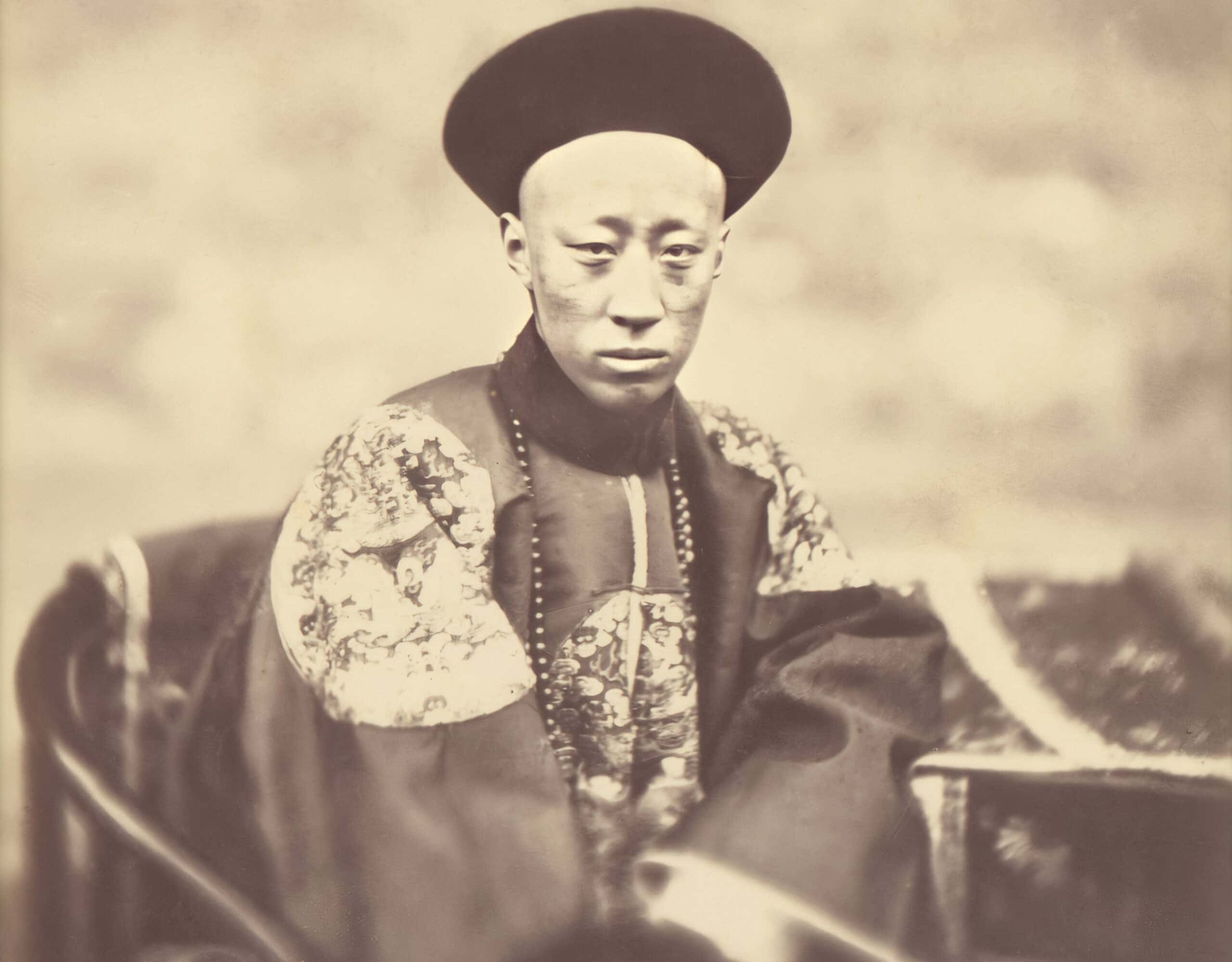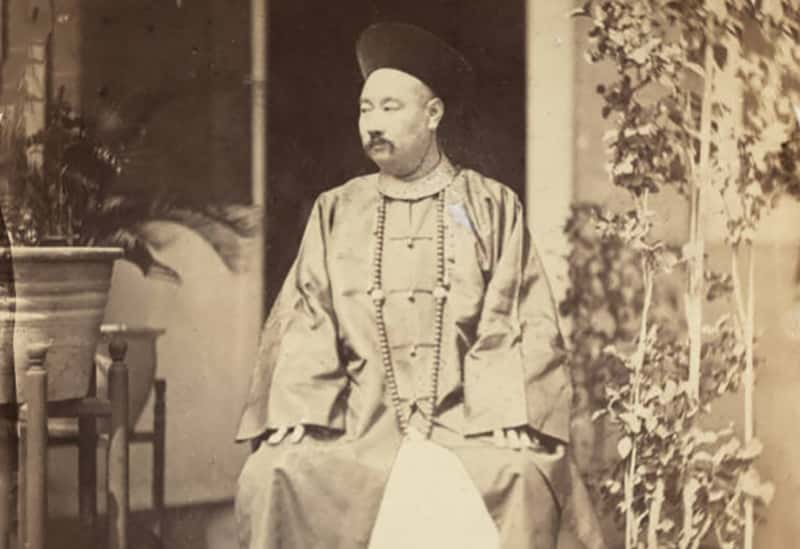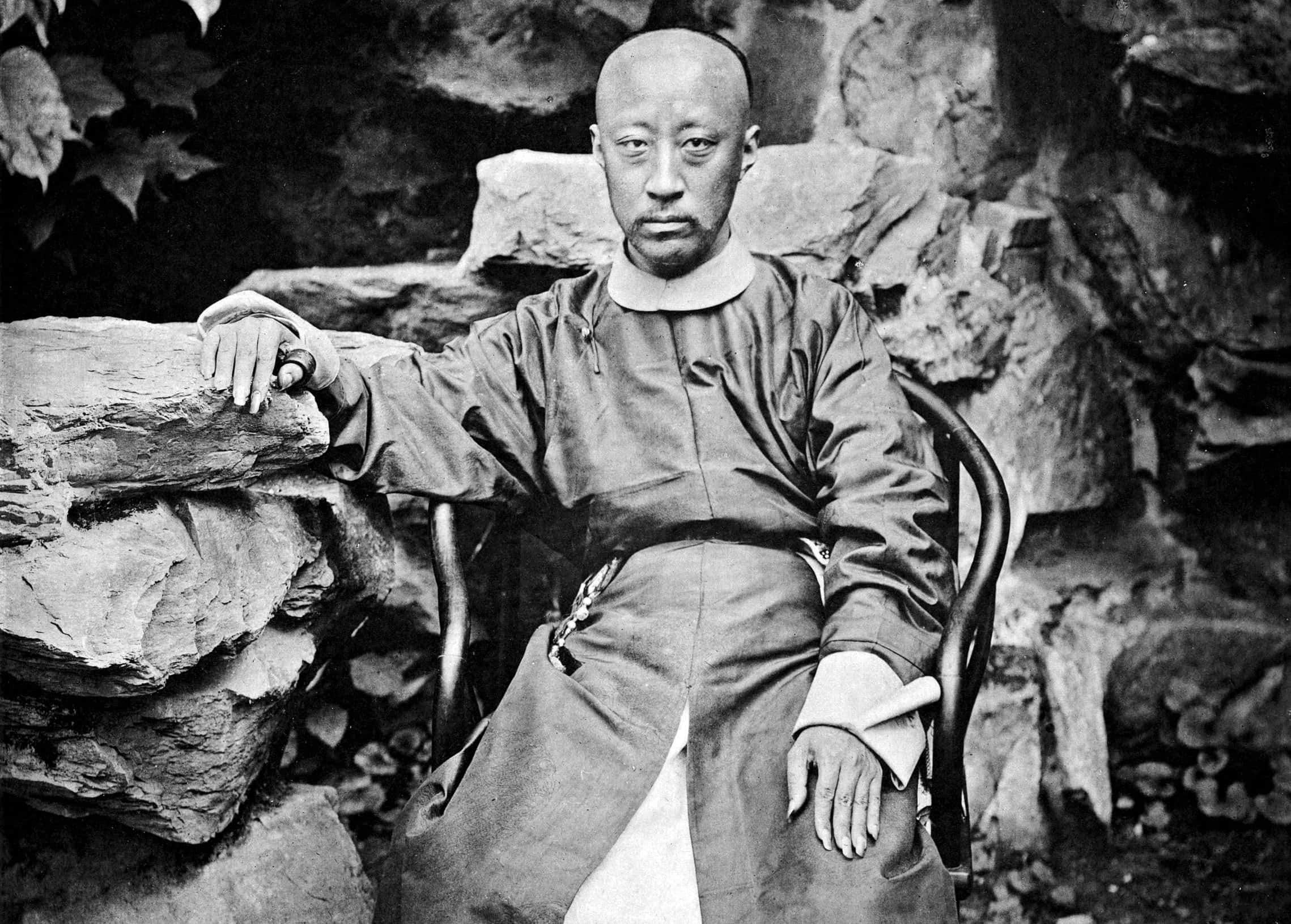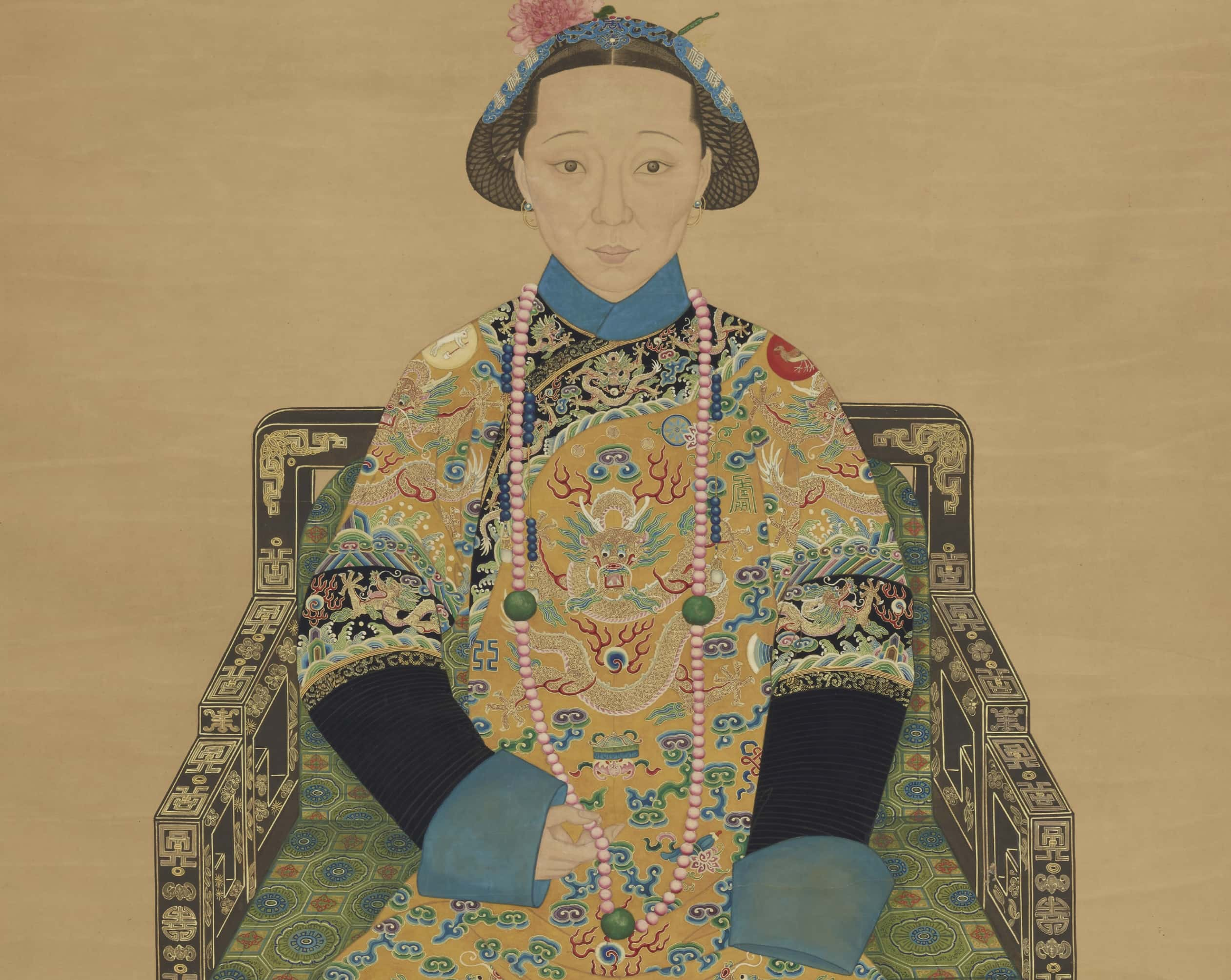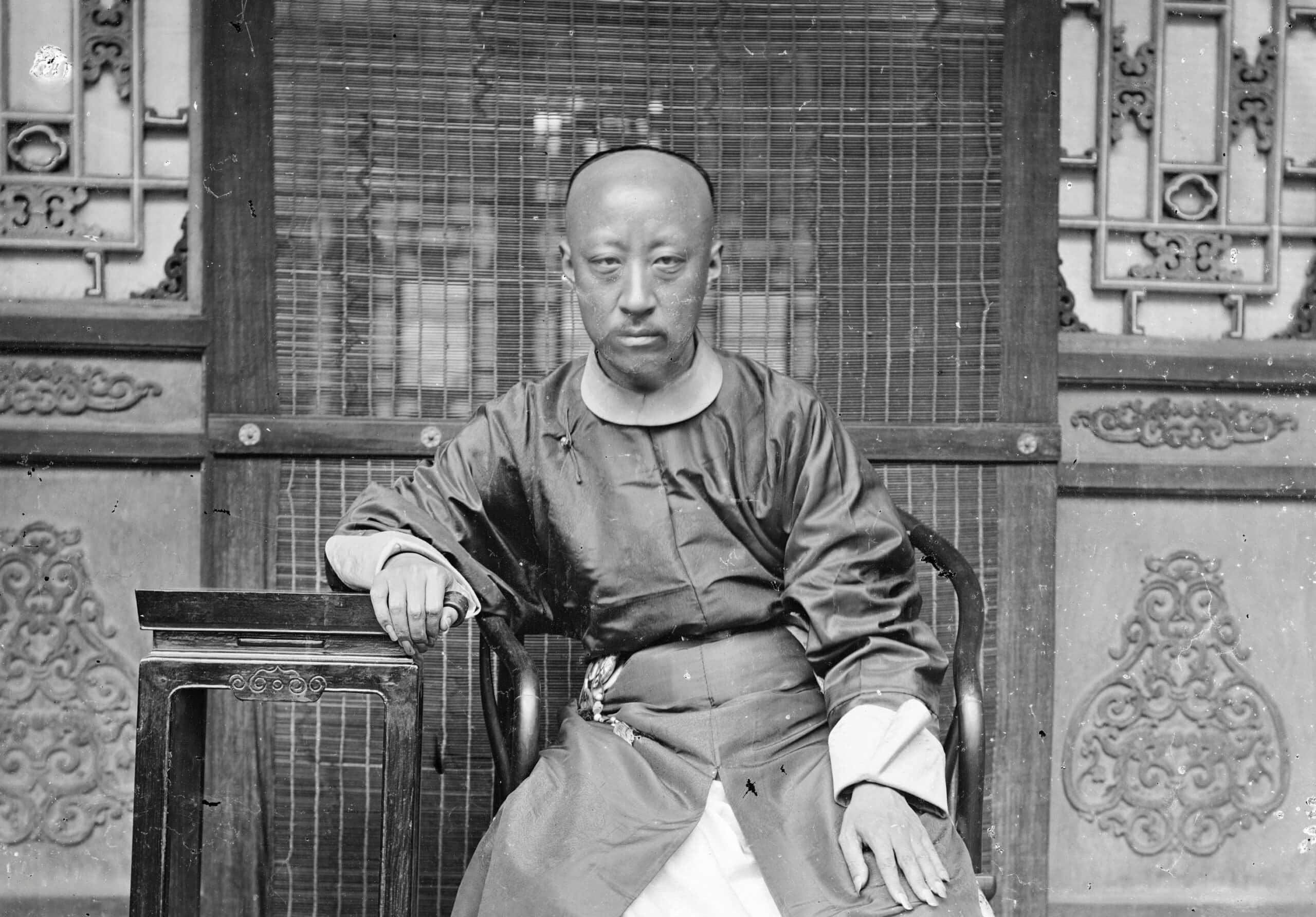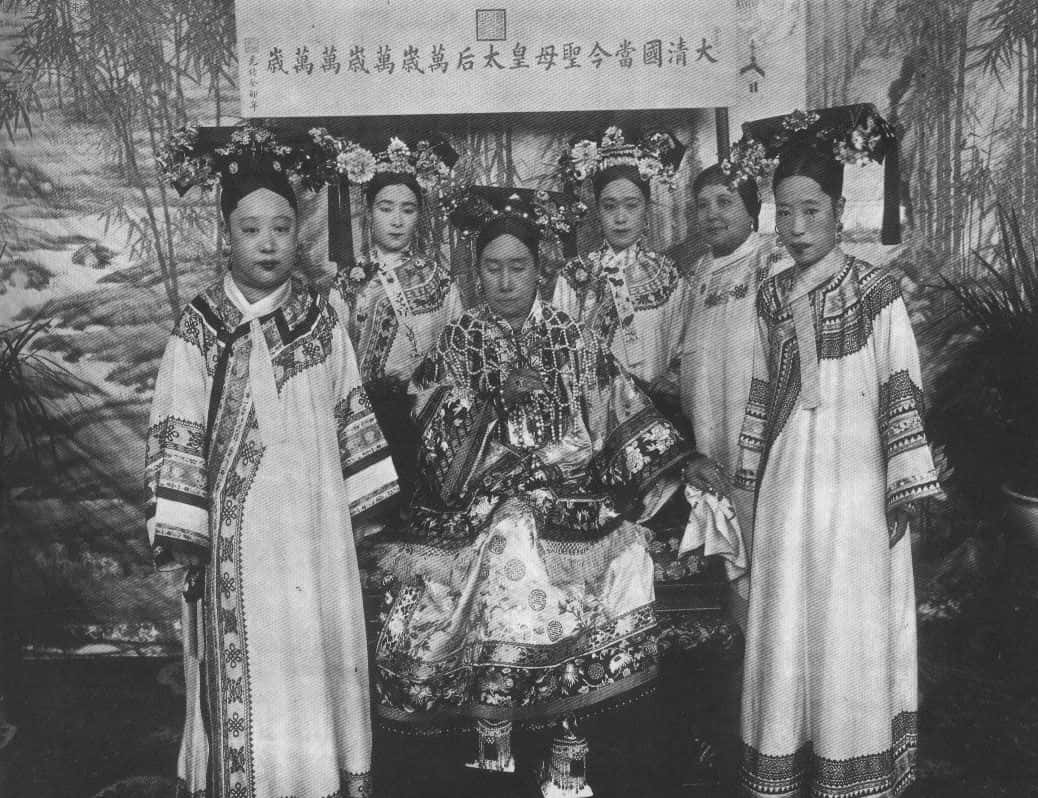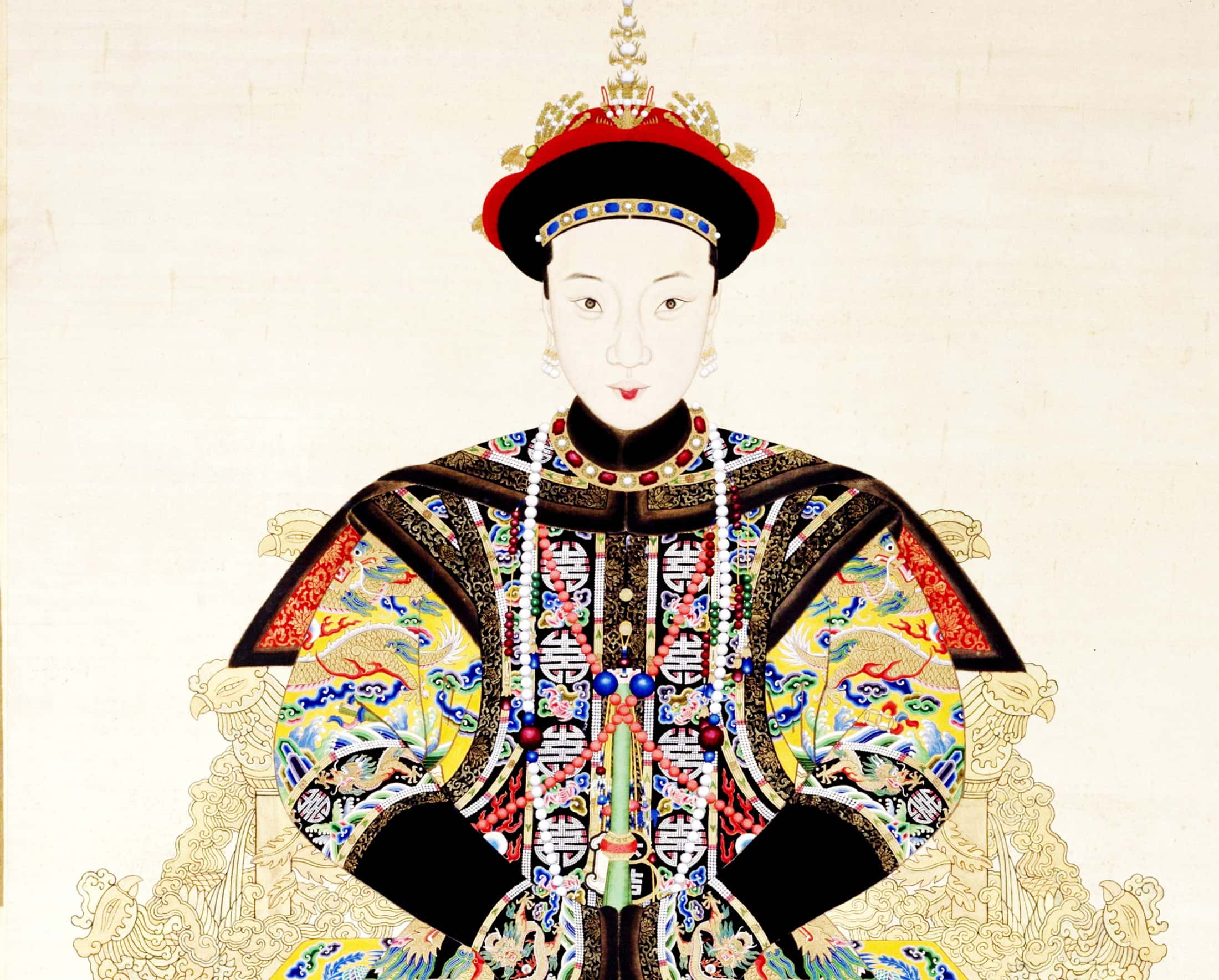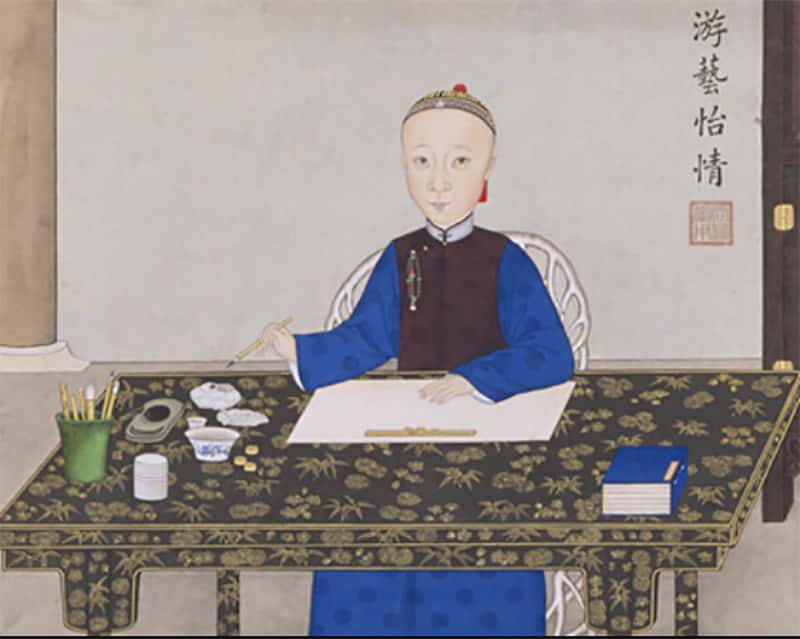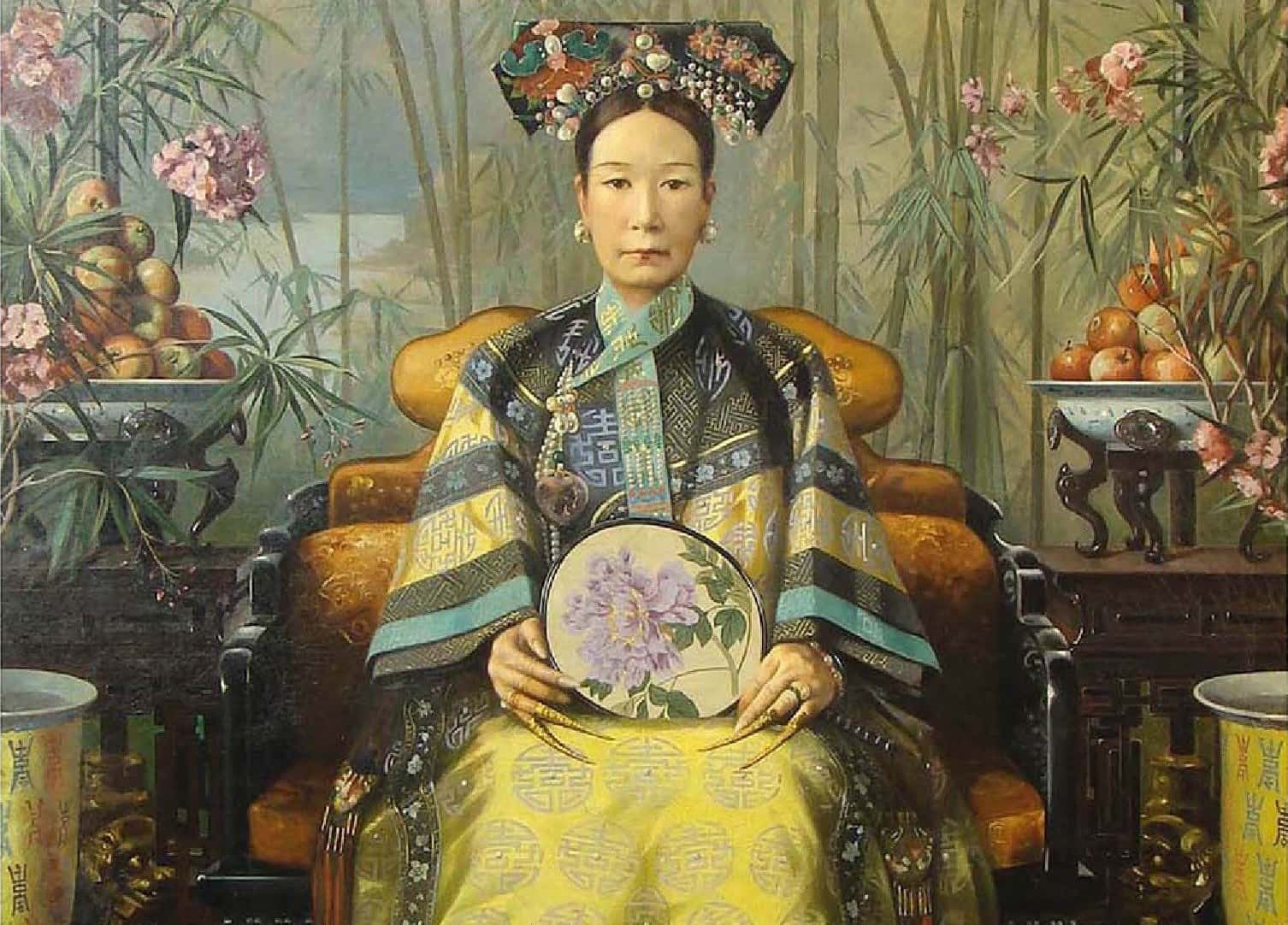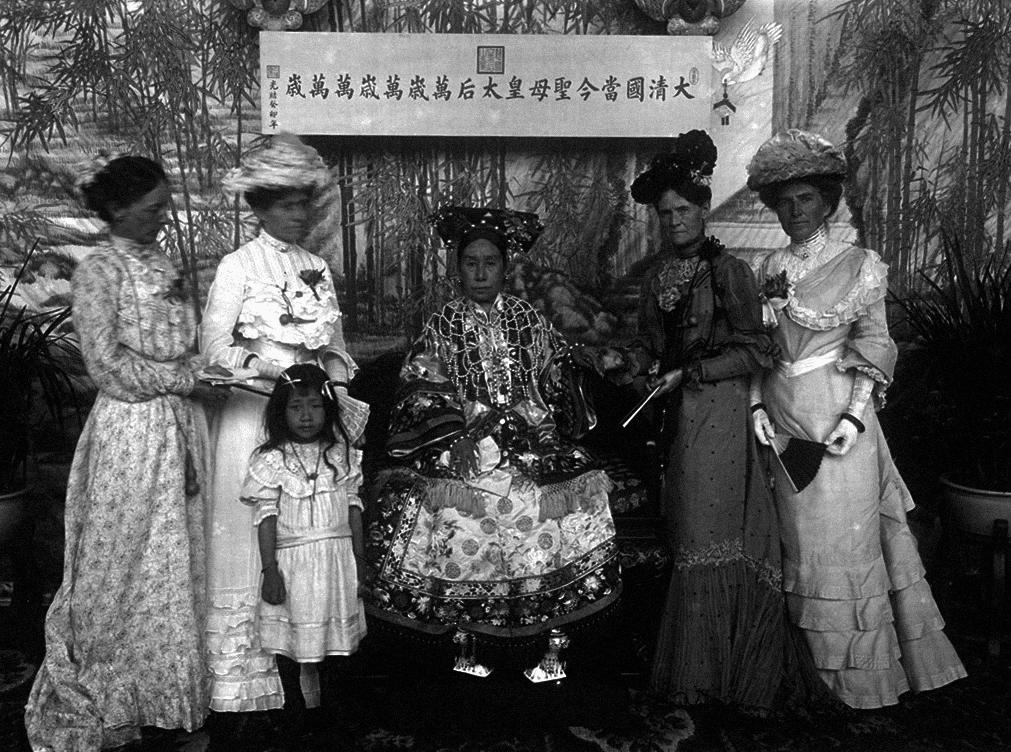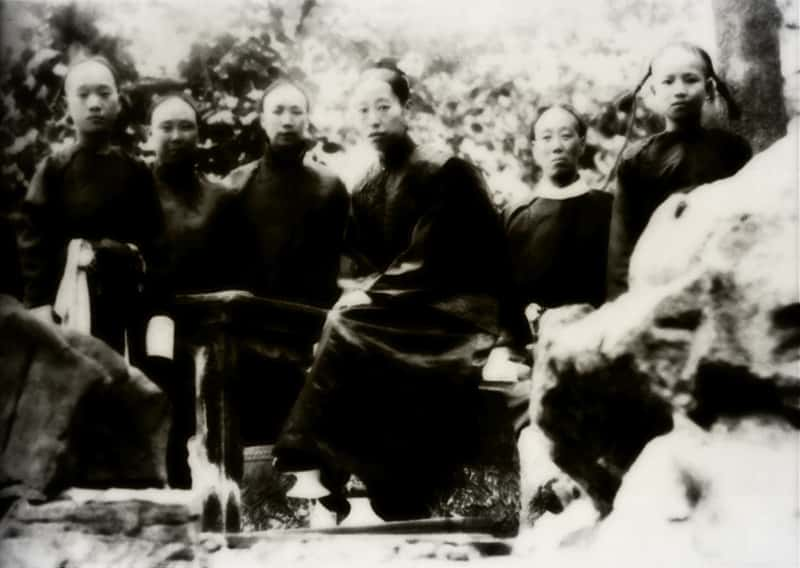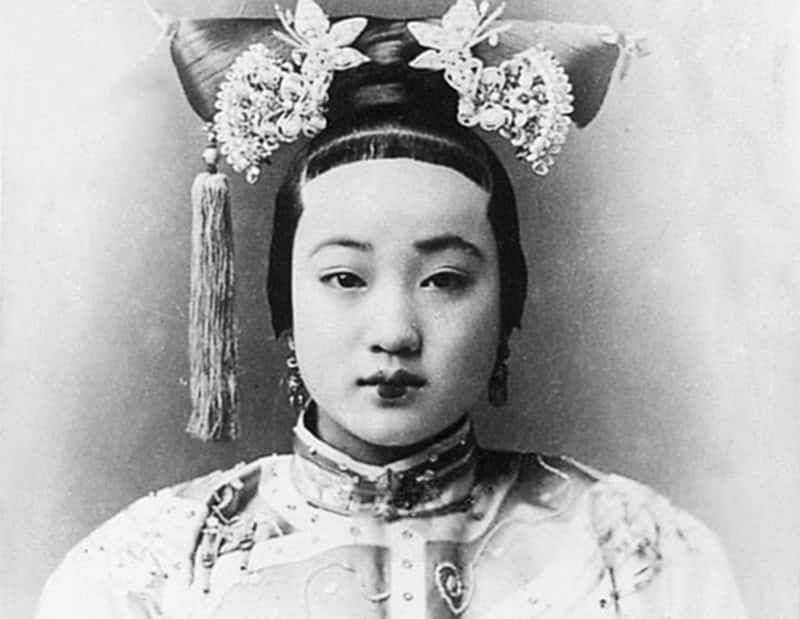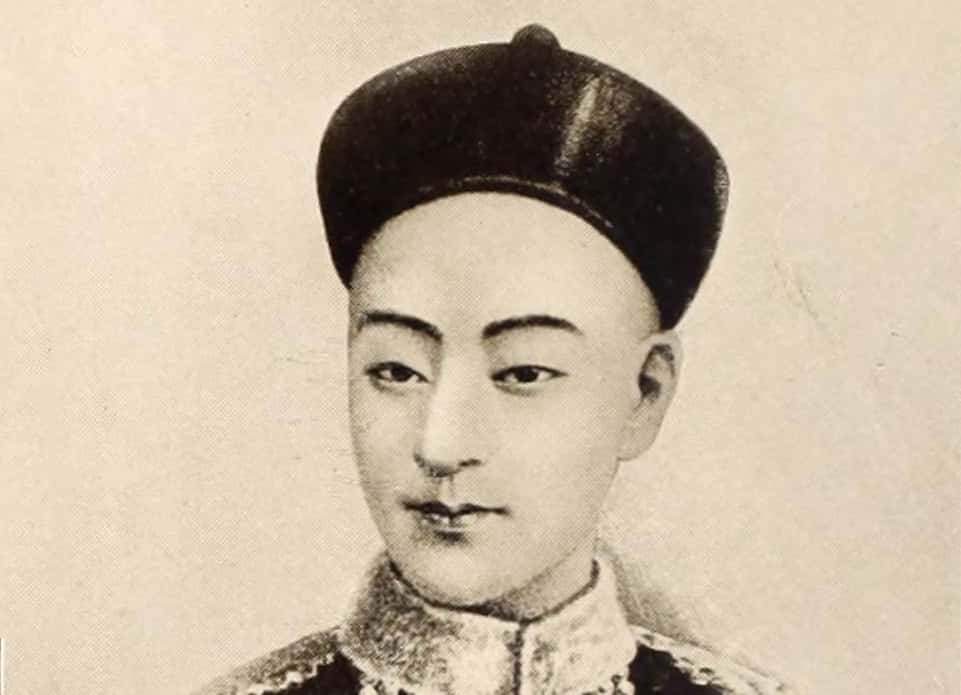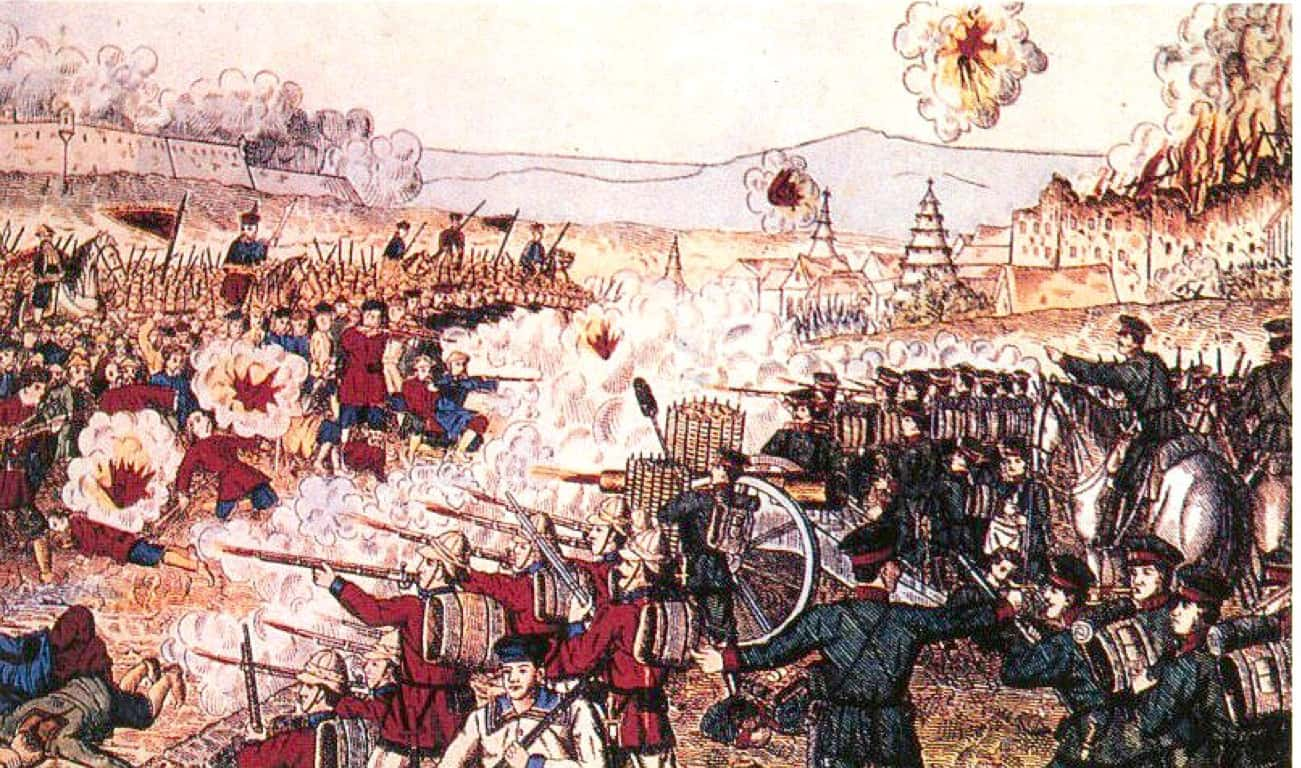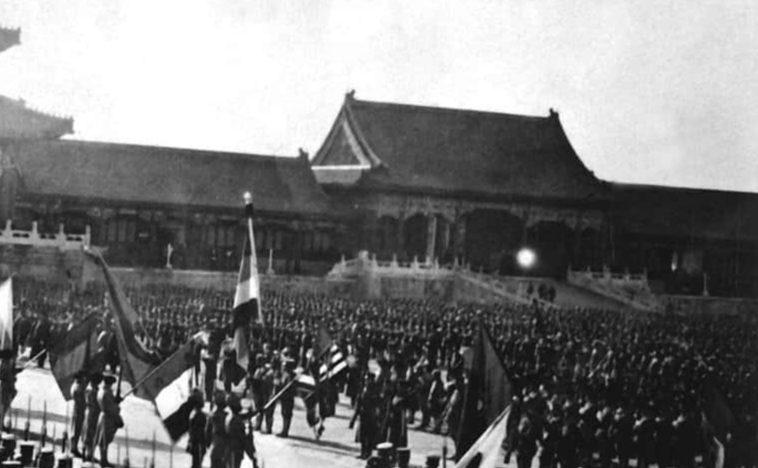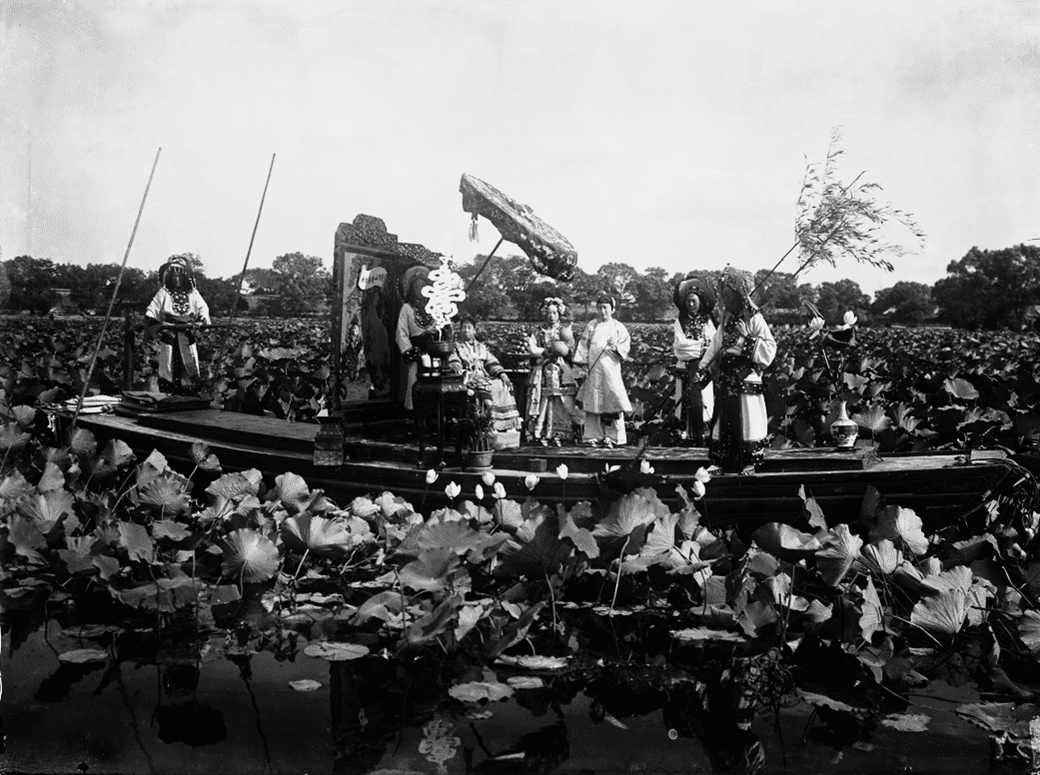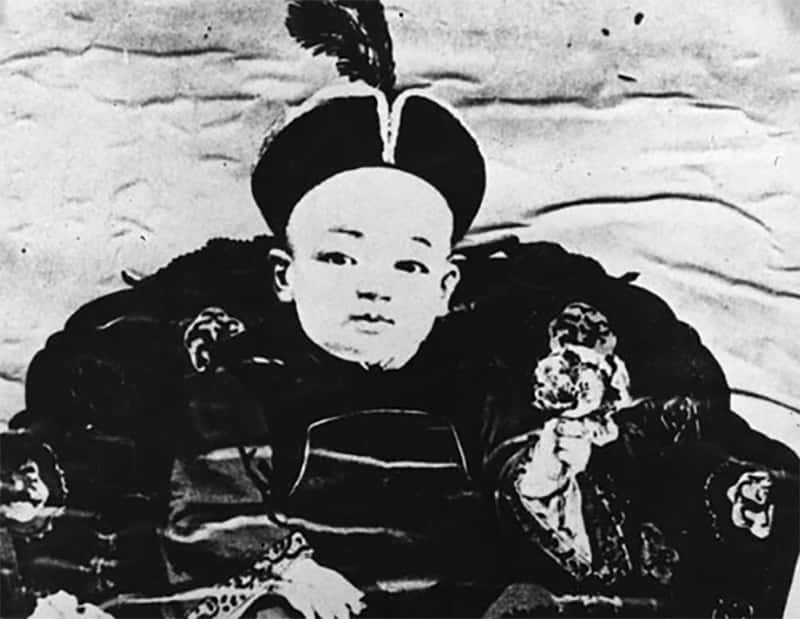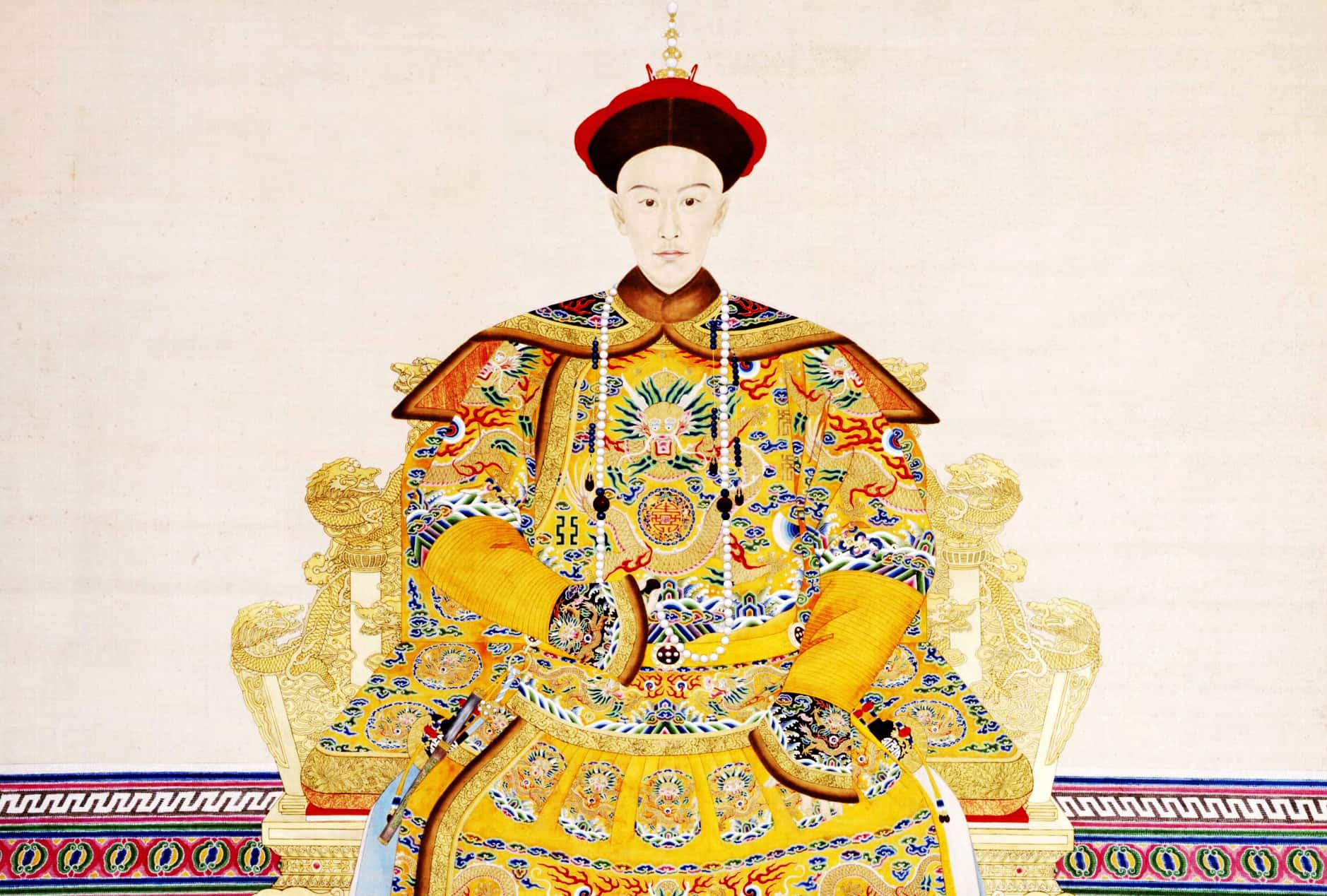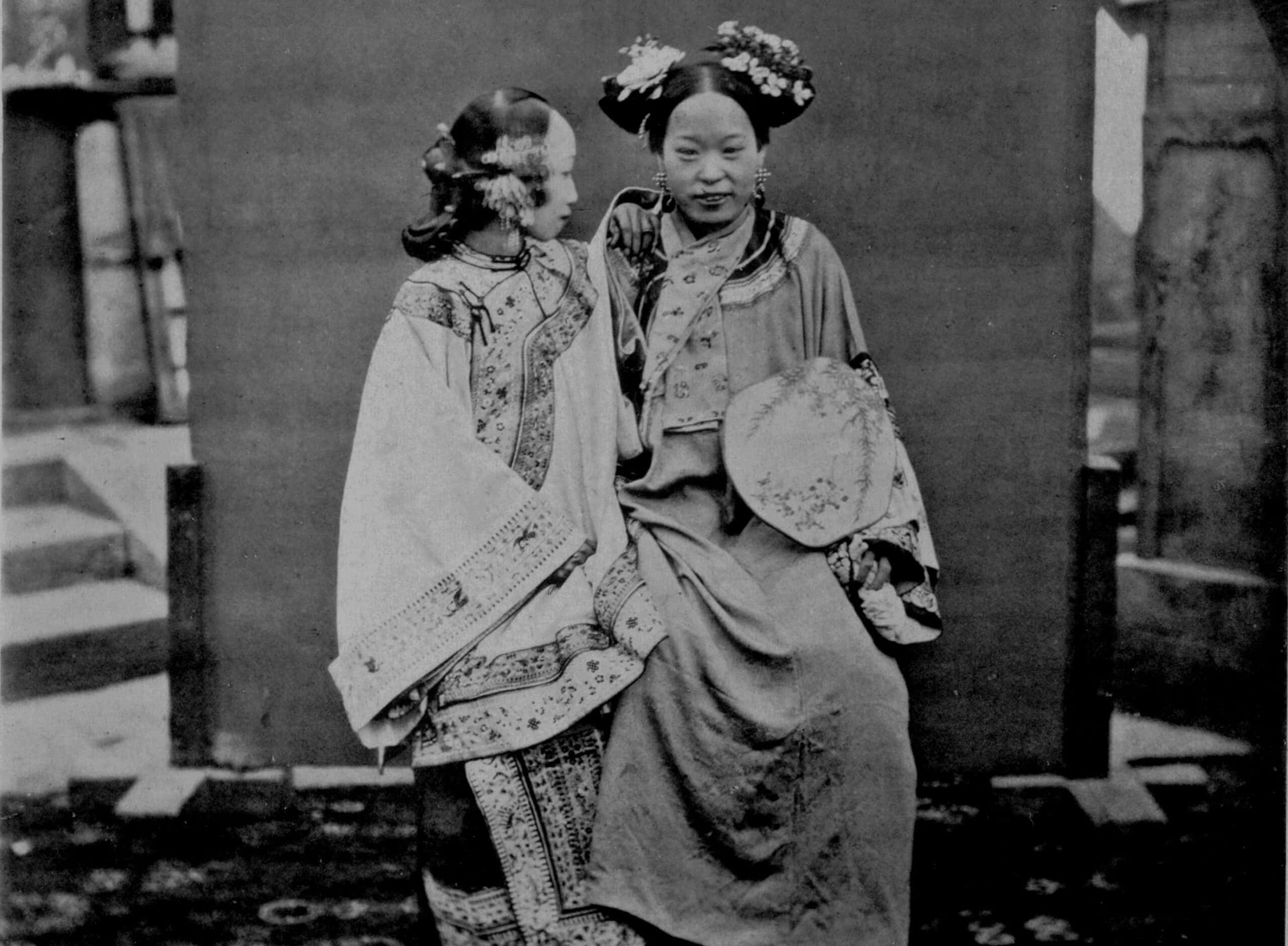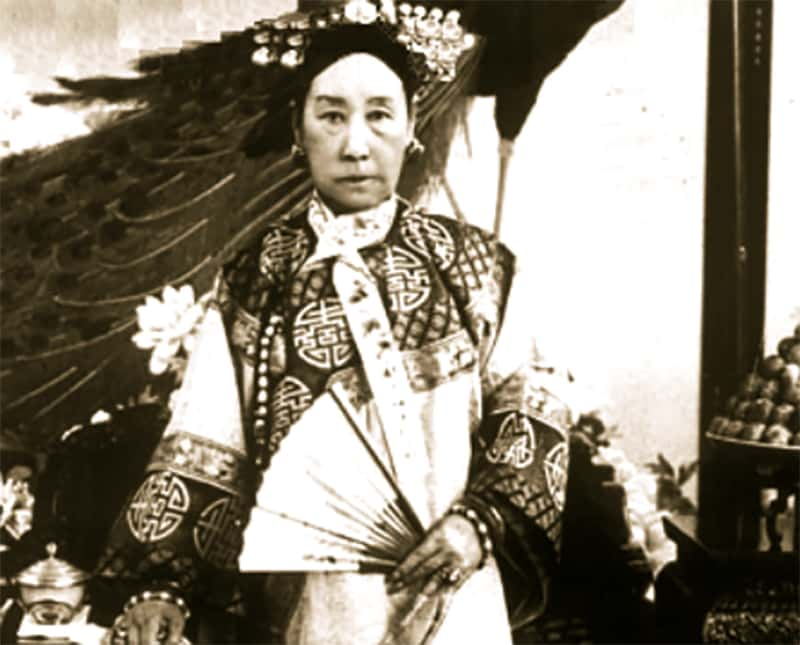How does a lowly concubine rise through the ranks to become the Dowager Empress of China? Ask Empress Cixi. Imperial China wasn't an easy place for a woman to rule, but Empress Cixi managed to reign for almost 50 years, thanks to a trademark combination of cleverness, ambition, and occasionally, mind-bending cruelty. Get ready: We're pulling back the golden curtain on one of history's most fascinating rulers.
1. She Had Humble Beginnings
On November 29, 1835, a small-time duke and his wife welcomed a baby girl named Cixi. Little did they know, she'd turn out to be one of China's most important women. But even though Cixi's adulthood made history, we know very little about her childhood. According to stories, it wasn't good. Cixi's father was addicted to opium and gambling, so the little girl had to sing on Beijing's busy streets for money.
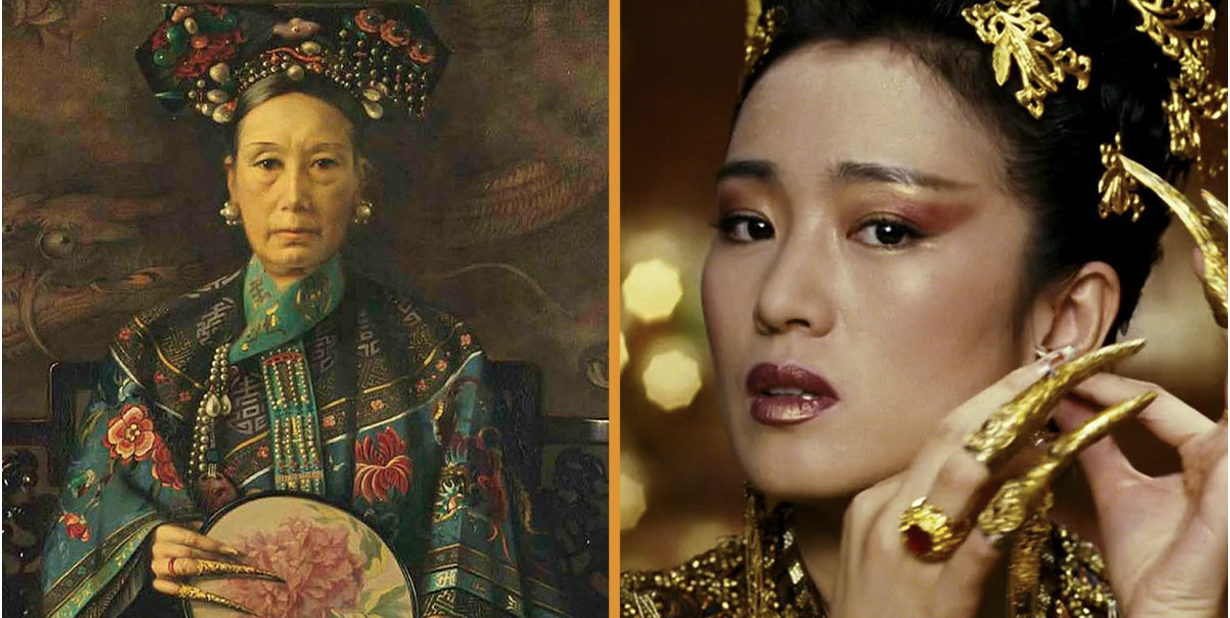
2. Her Clan Was Unique
Cixi did have one thing going for her. She was born in the ruling Manchu minority clan, which meant she had first dibs on being one of the concubines in the Emperor’s harem. That might not be a job you’d want for your daughter today, but it was a coveted position back in 1800s China—and Cixi was determined to gain power in any way that was available to her.
3. She Had A Dark Home Life
When Cixi was just a teenager, she auditioned to become one of the Emperor’s royal concubines. Thanks to her stunning beauty, among 60 girls, Cixi landed the prestigious gig. But her triumph had some dark roots: Cixi was happy to become a concubine because she she had a terrible home life and “was, to a great extent, ignored altogether” by her family. Well, while her time in the palace was far from perfect, no one could say that Cixi was ignored...
 Lover of the Last Empress (1995), Fortune Star Films Company
Lover of the Last Empress (1995), Fortune Star Films Company
4. She Became A Royal Concubine
Around 1850, Cixi strode into the Forbidden City and became one of the Emperor’s concubines—but there was a big catch to her new job. Her official position was as a "sixth-rank consort" which was was the lowest rank at the time. But as we'll see, Cixi quickly made her way to the top. How? Well, there are two stories. One is rated G, the other is rated R.
5. She Got Close To The Emperor
In the kid-friendly version of Cixi's meteoric ascent, legend has it that the Emperor heard Cixi singing and was immediately smitten. In the adults-only version, Cixi swooped in when the Emperor's favorite concubine became pregnant. With his first choice out of commission, the Emperor began to visit Cixi’s bedchambers more and more often. All those late-night visits made a big impact on Cixi’s status in court...
 The Empress Dowager (1989), Pearl River Film Studio
The Empress Dowager (1989), Pearl River Film Studio
6. She Gave Him An Heir
She rose to the fifth rank of consorts, but more importantly she became pregnant. Zaichun, her son (and the Emperor’s only surviving heir) was born in 1856. After giving the Emperor a bouncing baby boy, Cixi got another promotion. She was now second only to the Empress herself. She was so close to power, but as she soon learned, so far.
 Lover of the Last Empress (1995), Fortune Star Films Company
Lover of the Last Empress (1995), Fortune Star Films Company
7. She Had To Share Motherhood
Even though Cixi was little Zaichun’s birth mother, she wasn't actually allowed to be his parent. Instead, Cixi's rival, the Empress, took that privilege. Even though the Empress never gave birth to any children, she raised all the consorts' babies. Unsurprisingly, this was heartbreaking for Cixi. She had little or no say in her son's life—and she despised the Empress for taking him away from her.
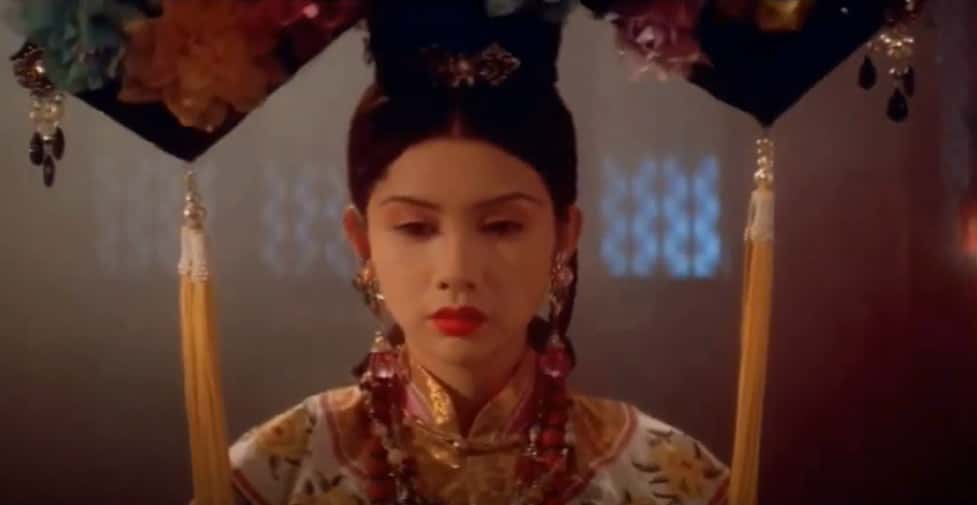 Lover of the Last Empress (1995), Fortune Star Films Company
Lover of the Last Empress (1995), Fortune Star Films Company
8. The Emperor Admired Her
The Empress had the upper hand for now, but Cixi provided serious competition. She was beautiful, clever, and ambitious. At a time when most Manchu women were illiterate, she could read and write—and these crucial skills gave her a huge advantage in the Emperor's harem. Whenever the Emperor was sick, he asked Cixi to work on his behalf. As the Emperor rested, his consort learned how to rule.
 Lover of the Last Empress (1995), Fortune Star Films Company
Lover of the Last Empress (1995), Fortune Star Films Company
9. Her Lover Met A Dark End
Unfortunately, or well, fortunately for Cixi, the Emperor did not live long enough to see his son grow up. As China entered a time of political turmoil, the Emperor's illnesses became more frequent. The final straw was during the Second Opium War when enemy forces attacked Beijing and burned down the Emperor's Old Summer Palace. After this blow, the Emperor breathed his last. And with his demise, it was time for Cixi to take the reigns.

History's most fascinating stories and darkest secrets, delivered to your inbox daily.
10. She Was Sidelined
Cixi became the Dowager Empress after her beau's passing—but awkwardly, she had to share her throne with her old rival: the official Empress. Even worse, Cixi's actual "power" was non-existent. Eight ministers held the real keys to the kingdom. They were the ones who got to advise the new Emperor, Cixi's five-year-old son Zaichun. As you can imagine, this didn’t sit well with Cixi and soon, her anger began to show.
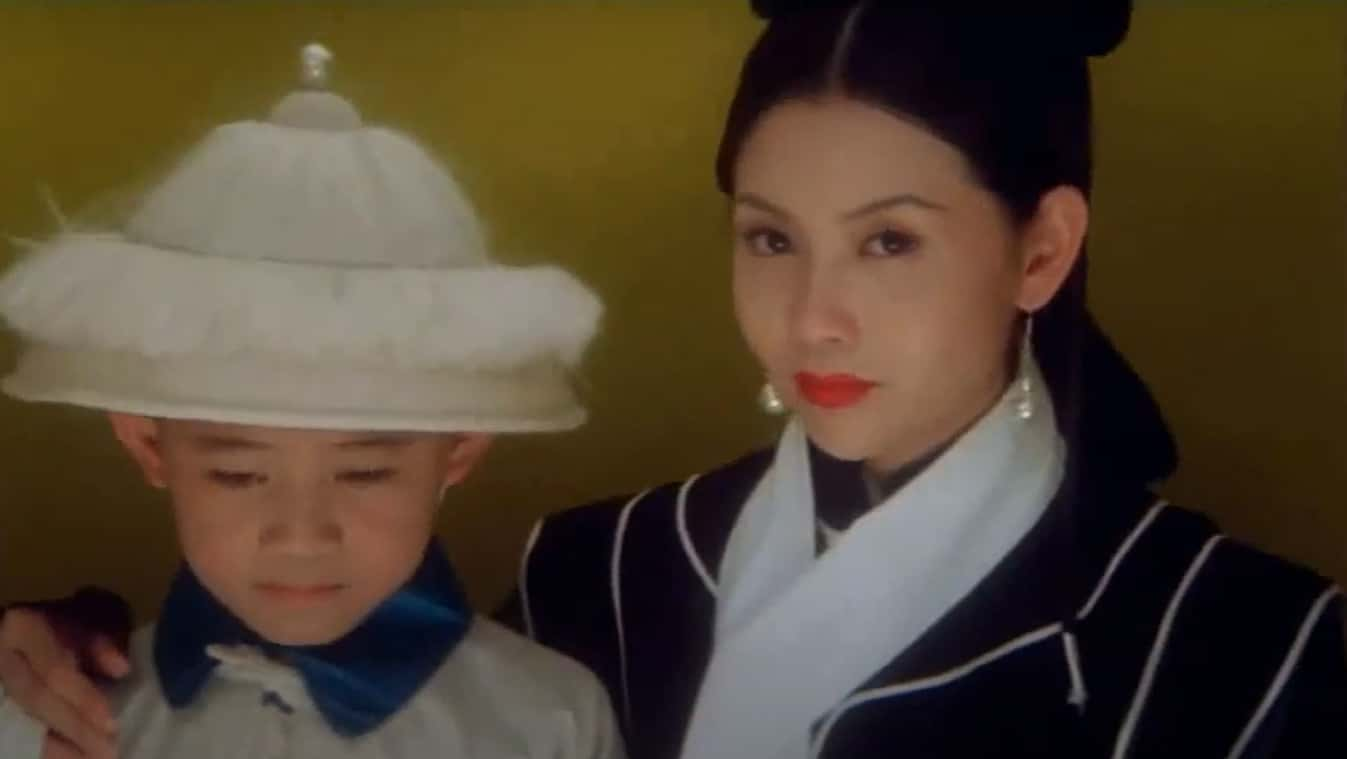 Lover of the Last Empress (1995), Fortune Star Films Company
Lover of the Last Empress (1995), Fortune Star Films Company
11. She Claimed Power
Cixi wanted the throne and she wasn't shy about it. She started confronting the ministers and demanding that they obey her. Then she began secret negotiations with Prince Gong and the East Dowager Empress. She needed all her allies ready for her next act: You see, there was a traitor in the palace, and Cixi was determined to crush him.
12. She Stayed Firm In The Face Of Adversity
You know someone means you harm when they cut off necessities to your house. That is exactly what an adviser named Sushun did to Cixi and the Emperor's other consorts. He stopped the supply of food and other essentials, hoping the women would give in and hand him they royal seal. Plot twist: This plan did not go well for Sushun.
13. She Orchestrated A Coup
Cixi made her move at an auspicious occasion: the Emperor's funeral. With her allies by her side, Cixi publicly accused the ministers of being incompetent and even causing the Emperor's demise. Her bold rebellion paid off. China turned against the ministers and demanded that Cixi take power. There was just one thing left for her to do: Of course, she'd have to dole out a brutal punishment to the advisers who tried to usurp her.
 Lover of the Last Empress (1995), Fortune Star Films Company
Lover of the Last Empress (1995), Fortune Star Films Company
14. She Tried To Be Humane
Cixi may have been power hungry but she wasn’t bloodthirsty...well at least, not as much as some of her friends. Even though her ally, the Prince, wanted to execute the ministers through the long, painful “death by a thousand cuts” method, Cixi chose a lighter sentence. Sushun lost his head, while she gave the other ministers pieces of white silk—so they could hang themselves. It sounds dark, but as a sign that Cixi wasn't blood-thirsty, she went against tradition and spared the traitors' families.
 The Empress Dowager (1989), Pearl River Film Studio
The Empress Dowager (1989), Pearl River Film Studio
15. She Believed In Partnership
She may have been the brains behind the takeover, but Cixi was happy to share her authority with her co-Empress. This may have been because the Empress had no interest in flexing her power anyway. With the kingdom at her feet, Cixi started her rule. Her first imperial edict, made on behalf of her son (the technical Emperor, remember?), was that she and the other Empress would be “sole decision makers". No one would interfere with them—and by "them" we mean Cixi.
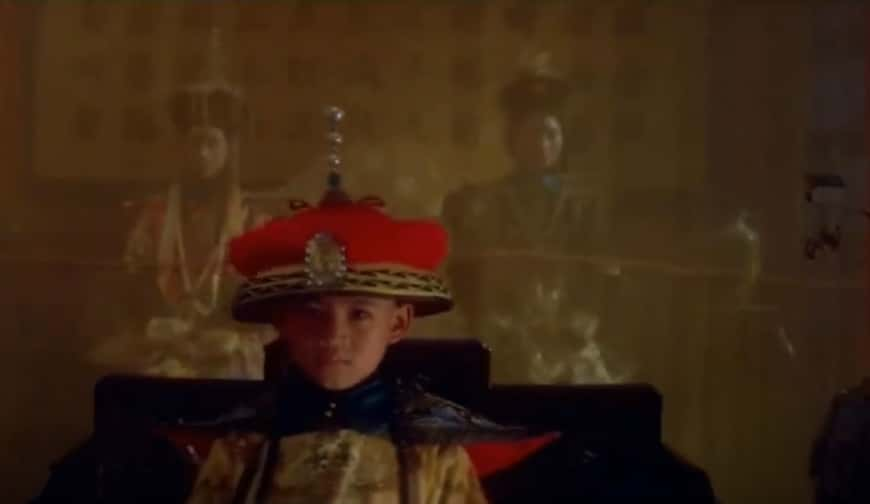 Lover of the Last Empress (1995), Fortune Star Films Company
Lover of the Last Empress (1995), Fortune Star Films Company
16. She Ruled From Behind A Curtain
As the Emperor, Cixi's son ruled from an ornate throne—but people in the palace knew that the real power was just out of sight. As Cixi was a woman, she couldn't take her son's place, so she would sit on a secret throne hidden behind her son's seat. The only thing in between Cixi and absolute power was a golden curtain, through which she could direct her son's actions.
 The Empress Dowager (1989), Pearl River Film Studio
The Empress Dowager (1989), Pearl River Film Studio
17. She Dealt With A Rebellion
Cixi had her work cut out for her. China was still reeling from the after-effects of the Second Opium War, and a rebellion was stirring unrest in the south. Cixi decided she would deal with the conflict in a, shall we say, unorthodox way. Instead of being nepotistic and appointing her own people, the Manchus, Cixi appointed a Han to lead the country’s most powerful armed unit against the rebels. Yup, Cixi dared to give people jobs based not on family connections but on, shocker, merit!
 Lover of the Last Empress (1995), Fortune Star Films Company
Lover of the Last Empress (1995), Fortune Star Films Company
18. She Chose Wisely
Cixi’s decision to appoint a Han was greeted with a lot of raised eyebrows, but in time, everyone agreed that she made the right call. Her general crushed the Taiping Rebellion. It looked like a victory for Cixi—but then, everything fell apart.
19. She Did Not Like Competition
Remember Cixi's one-time ally, Prince Gong? Well, he started to control the court a little too closely. Cixi began to mistrust him and feared that he would become a threat to her. So, she made a chilling decision. She dismissed the Prince from all his offices in 1865. But that wasn't even the worst part: The only way that the Prince could keep his noble status was by agreeing to a humiliating condition. He had to claim that he had shown “improper court conduct” to Cixi and the Dowager Empress.
20. She Crushed Her Rivals
The Prince was shattered and begged for Cixi to reconsider. In the end she agreed to allow him to return to his position but took away his title of “Prince Regent” but more importantly, all the power that came with it. The Prince went from a ruler to a pawn overnight: Never again would he have a say in the country’s policies. Unsurprisingly, he was furious—and soon, he lashed out at Cixi with a brutal act.
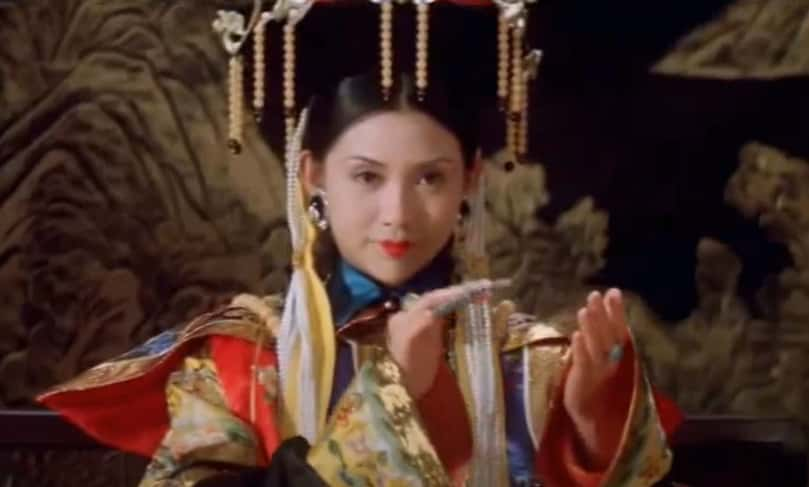 Lover of the Last Empress (1995), Fortune Star Films Company
Lover of the Last Empress (1995), Fortune Star Films Company
21. The Prince Sought Revenge
Everyone needs a friend, no matter how much of a control freak they are. Cixi found a kindred spirit in a court eunuch and their close friendship began to get noticed. Prince Gong, who was furious and looking for any way to hurt Cixi, saw a perfect opportunity. When he heard that the eunuch was using his friendship with Cixi as a way to extort money from Chinese citizens, the Prince immediately tattled to Cixi's co-ruler, the Empress. She responded with more fury than the Prince ever could have imagined.
22. She Lost Her Friend
The Empress, who was usually gentle and calm, stunned the court with her bloodthirsty reaction. She was so incensed to hear of the eunuch's behavior that she ordered his arrest and then went even further: She had him beheaded. But why did she lash out with such violence? Historians now believe that the Prince was behind everything. It was all a way to get back at Cixi.
23. She Cared About Women’s Rights
All her shortcomings aside, Cixi was an early feminist. She banned the painful practice of foot-binding and used her power to let women receive modern educations. She pushed for building higher education institutions for girls and for sending them abroad to study. Chinese female students received their first scholarships because of her hard work. Cixi liked to built other women up—unless, of course, you were her daughter-in-law...
24. She Hated Her Son’s Wife
Cixi and her daughter-in-law rubbed each other the wrong way from the very beginning. Although both Empresses agreed that the Emperor needed to get married when he turned 17, they weren’t united on their choice of a bride. In time, Cixi relented and let the other Empress have her way. The teenage Emperor wed the Jiashun Empress, but unfortunately for everyone, the marriage was doomed.
25. They Had Bad Blood
Remember when Cixi made those ministers take their own lives back in the day? Well, it turns out that one was the grandfather of Cixi's new daughter-in-law. And no, if you're wondering, the Emperor's new bride was definitely not over her grand-dad's horrific demise. Almost immediately after meeting Cixi, she began to tear into her mother-in-law.
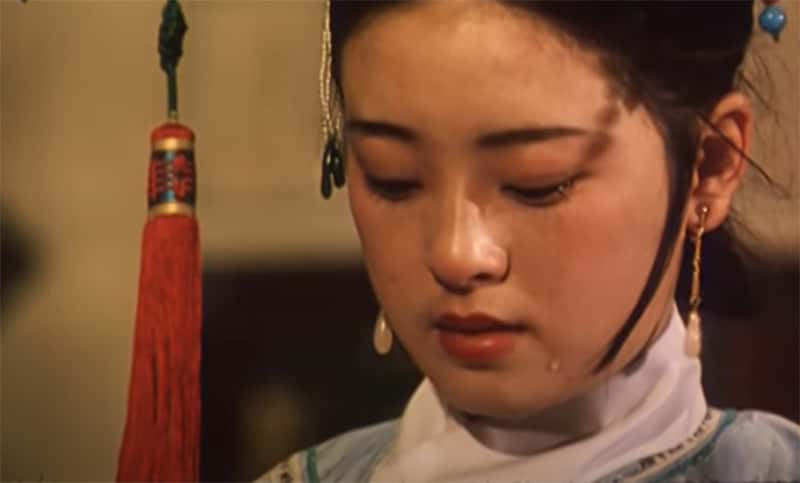 The Empress Dowager (1989), Pearl River Film Studio
The Empress Dowager (1989), Pearl River Film Studio
26. She Felt Insulted
The Emperor's new wife was bent on making Cixi miserable. She refused to be courteous to her mother-in-law (who was also, y'know, the ruler of China) for a brutal reason. She haughtily declared that she was better than Cixi. After all, the Emperor's bride had “been carried through the front gate with pomp and circumstance". Meanwhile, Cixi had entered the Palace through a “side gate” (a reference to Cixi's past work as a concubine). Do I smell a feud brewing?
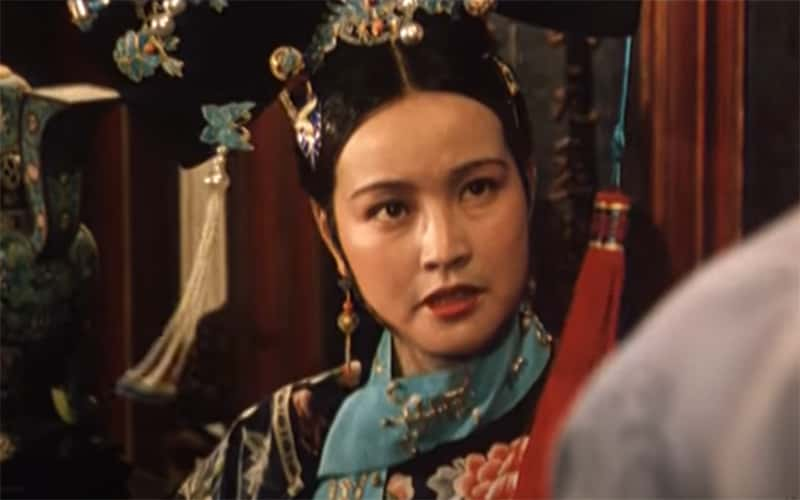 The Empress Dowager (1989), Pearl River Film Studio
The Empress Dowager (1989), Pearl River Film Studio
27. She Took Revenge
It was common knowledge that though Cixi had employed the best teachers for her son, he had no interest in learning. She ordered him to separate from his wife for a while and spend more time on his education. But was this really because Cixi wanted the Emperor to devote himself to his studies, or just because she wanted to put some distance between her son and his upstart bride?
28. Her Actions Had Disastrous Results
Unlike his go-getter mother, the Emperor wasn’t used to working hard for anything. He had difficulty reading until the age of 16 and being forced to study when all he wanted was to spend time with his wife and concubines did not help. He got so sick of isolation at the Palace that he began to frequent bordellos and, um, less respectable establishments dressed as a commoner. Unfortunately, his disguise wasn’t too convincing, and his debauchery the talk of the town.
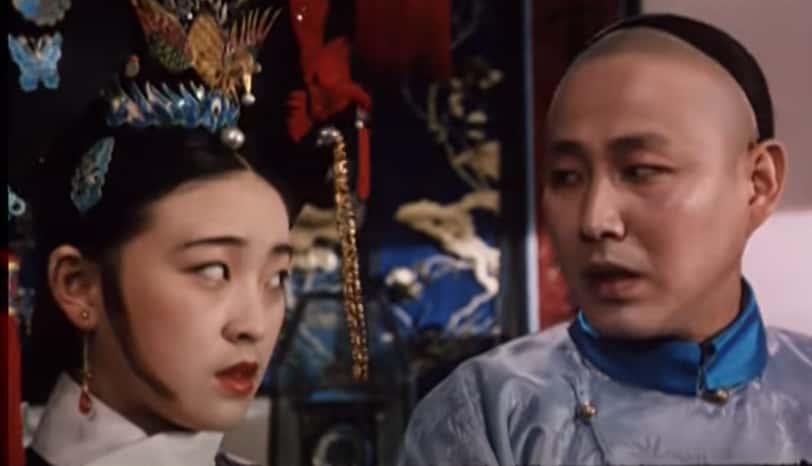 The Empress Dowager (1989), Pearl River Film Studio
The Empress Dowager (1989), Pearl River Film Studio
29. The Emperor Was A Mess
Cixi handed over control to the Emperor when he was 18, which was already a bad sign. This was a whopping four years later than usual. And when her son finally took the throne, he didn't make anyone wish he'd got there sooner. He made unwise decisions, like rebuilding a palace...when there was no money in the royal treasury. Naturally, this project did not have the desired results…
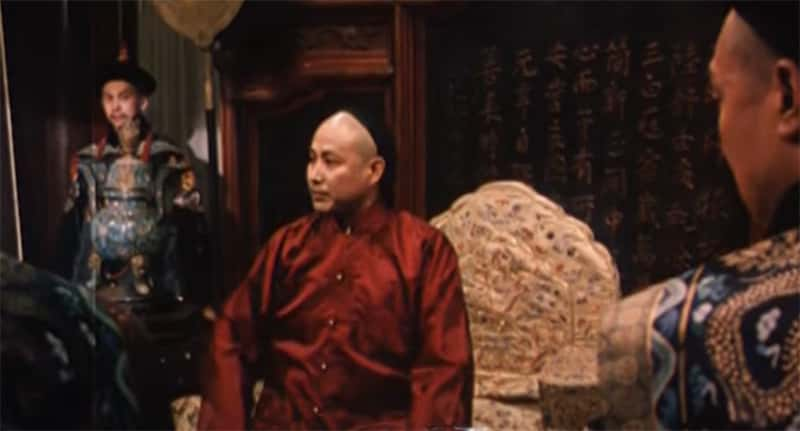 The Empress Dowager (1989), Pearl River Film Studio
The Empress Dowager (1989), Pearl River Film Studio
30. He Couldn't Cope
When Cixi's old frenemy the Prince approached the Emperor to, shall we say, reassess his idea about the palace, the Emperor threw a fit and passed his second decree. He wanted to strip the Prince and his brothers of their titles and force them to live as commoners. Even though Cixi had, y'know, tried to do the exact same thing back in the day, she'd evidently become calmer over the years. She put her foot down and overruled her son. Depressed that his word meant so little, the Emperor went back to living a life of hedonistic pleasures. Sadly, this led to a heartbreaking end.
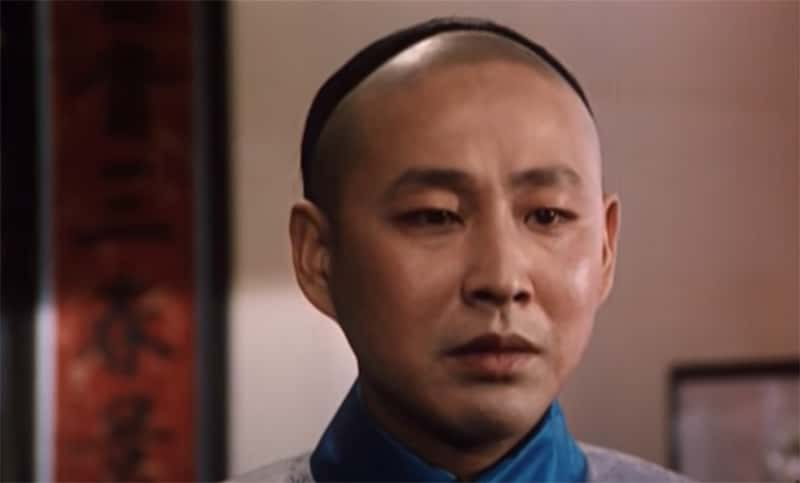 The Empress Dowager (1989), Pearl River Film Studio
The Empress Dowager (1989), Pearl River Film Studio
31. Cixi Was Back Where She Belonged
On January 13, 1875, the Emperor breathed his last. He was just 18 years old. Heartbroken, Cixi persuaded the court doctors to say that her son succumbed to smallpox, but dark rumors claimed that syphilis had led to the Emperor’s end. To make matters worse, the Emperor's wife perished soon after—and with her passing, Cixi lost more than a daughter-in-law. The young widow had been pregnant with the Emperor's son.
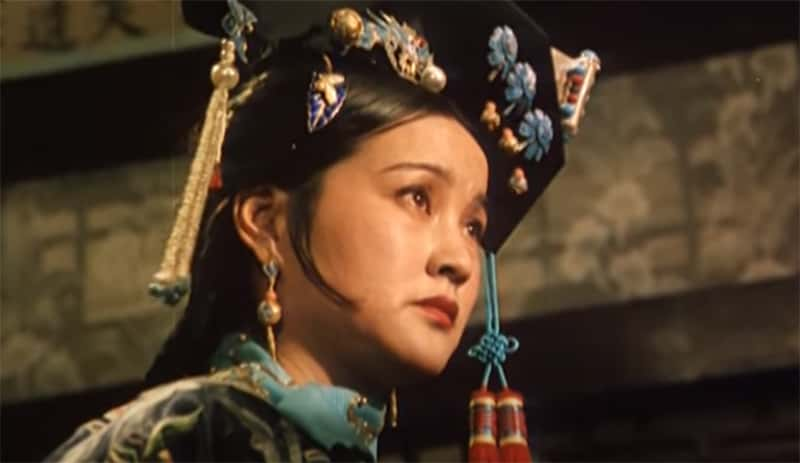 The Empress Dowager (1989), Pearl River Film Studio
The Empress Dowager (1989), Pearl River Film Studio
32. Dark Rumors Swirled
Without her son or his unborn baby, Cixi had no choice but to give the throne to her four-year-old nephew. Because the boy was, clearly, far too young to rule, Cixi and her old co-Empress were back in power. However, China buzzed with chilling rumors that Cixi had gone to horrific lengths to get back on the throne.
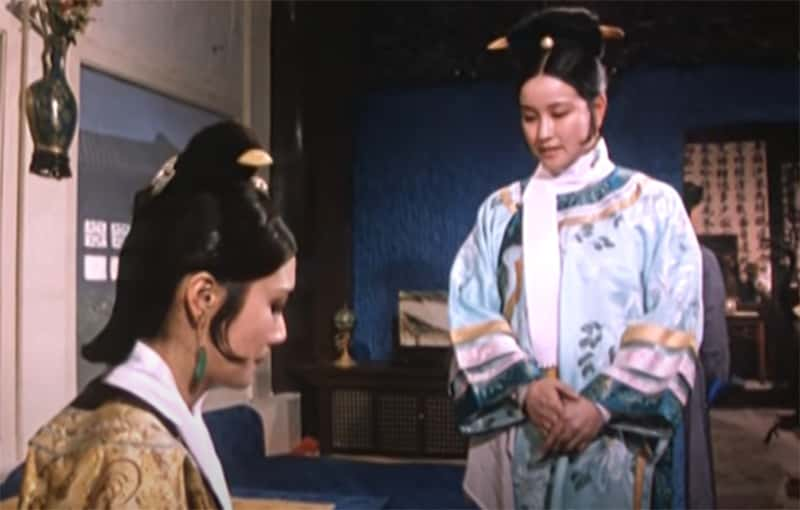 The Empress Dowager (1989), Pearl River Film Studio
The Empress Dowager (1989), Pearl River Film Studio
33. Family Wasn’t Sacred For Her
There is no evidence to back this up, but there is a theory that Cixi had her daughter-in-law poisoned after her son perished. She would have known that once her child was born, he would be the rightful heir and the Empress would take Cixi's power. Some people believe that this was enough of a reason for Cixi to orchestrate the murder. Ahem, did someone say monster-in-law?
34. She Got Very Sick
After choosing her nephew as the new Emperor, Cixi got so sick that she had to remove herself from state affairs. Since she was on complete bed rest, her old co-Empress had to step up and play a more active role, but not for long. She breathed her last in 1881 and her sudden demise gave birth to another chilling rumor.
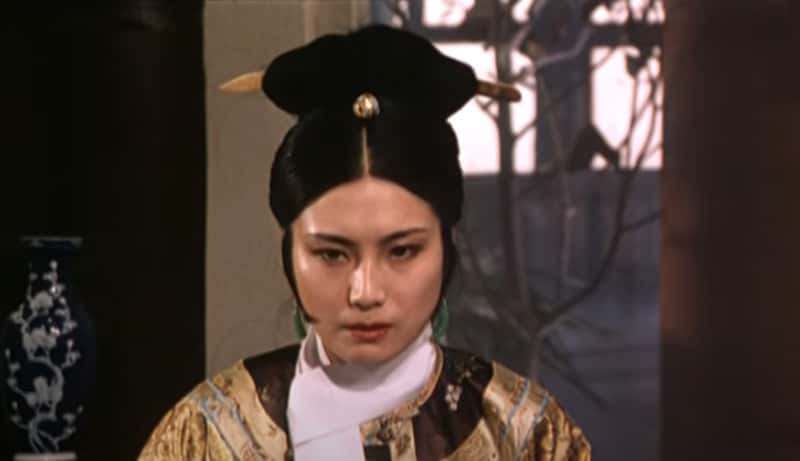 The Empress Dowager (1989), Pearl River Film Studio
The Empress Dowager (1989), Pearl River Film Studio
35. Was She Involved In Foul Play?
People thought it was either revenge or a desire for complete power that motivated Cixi to have her co-Empress poisoned. What would have been the cause for revenge? Well, that goes back to the Empress beheading Cixi's old friend, the Eunuch, so many years ago. But what about that power grab? Well, there's a far darker reason behind that possibility.
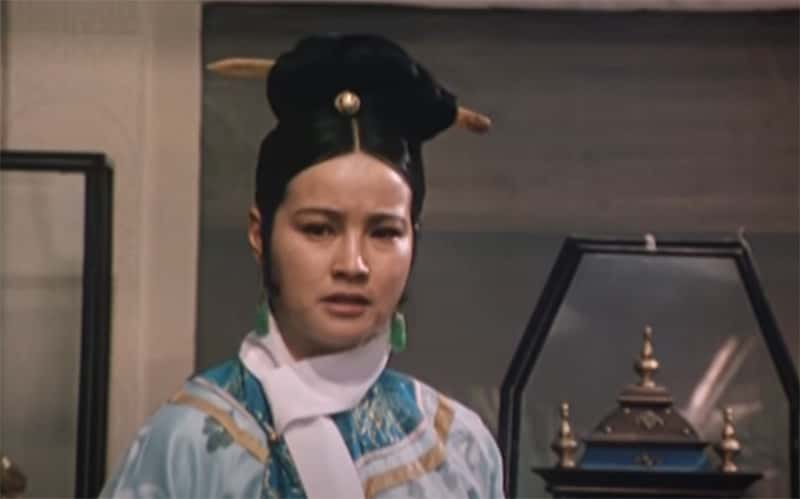 The Empress Dowager (1989), Pearl River Film Studio
The Empress Dowager (1989), Pearl River Film Studio
36. Her Ex Betrayed Her From Beyond The Grave
According to rumors, a chilling will had resurfaced in the months before the co-Empress' sudden demise. In it, Cixi's ex-partner, the old Emperor, had given the co-Empress permission to "eliminate" Cixi if it became "necessary". Now that's some Game of Thrones level intrigue! But on the other hand, historians don't put much faith in this explanation. They believe the co-Empress just succumbed to a stroke.
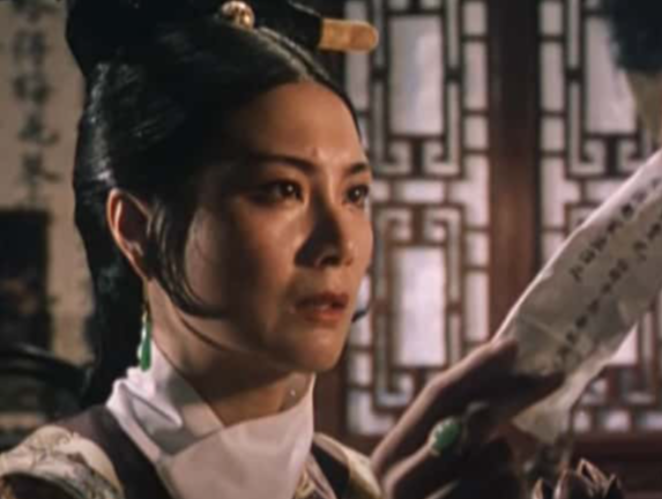 The Empress Dowager (1989), Pearl River Film Studio
The Empress Dowager (1989), Pearl River Film Studio
37. She Did Not Want To Let Go Of Power
Although Cixi decided to hand over the reigns of power to her nephew-Emperor when he turned 16, most people actually wanted her to continue to rule. By that point, the people of China had learned to trust Cixi. She had supported industrial programs, modernized China's currency, and had China’s first telegraph installed so she could talk with international diplomats. In short, she was a competent ruler! And so, while Cixi made a great show of reluctance, she agreed to stay on to “help” the Emperor.
38. She Got Jealous, Again
In 1889 though, Empress Cixi finally retired from the Palace and public eye for good. She chose her own niece, the Emperor’s besotted cousin, Jingfen, to be China's new Empress—despite the fact that the Emperor didn't return Jingfen's feelings. After landing her nephew with a wife he didn't want, Cixi sweetened the deal by giving the Emperor two consorts. Unfortunately, this gesture had horrific consequences.
39. She Dealt With The Other Woman
Cixi disliked the Emperor's consort Zhenfei and wanted him to ignore her in favor of his wife. That, um, didn't happen. When Cixi saw her nephew falling deeper in love with Zhenfei, she had the courtesan confined in a small area outside the palace and forbade her to see the emperor. Then the other shoe dropped. Cixi had the consort slain and then threw her body in a well. Yikes.
40. She Decided To Step In
Although Cixi retired to her Summer Palace and allowed the Emperor to do as he wished, she didn't completely distance herself from politics. Many officials still saw her as the real leader. And for good reason: The new Emperor's reign wasn't going well. Under his leadership, China suffered a humiliating defeat in the Sino-Japanese War. Then things got worse: the Emperor threatened Cixi's authority with a reform plan—leading her to leap back into the fray.
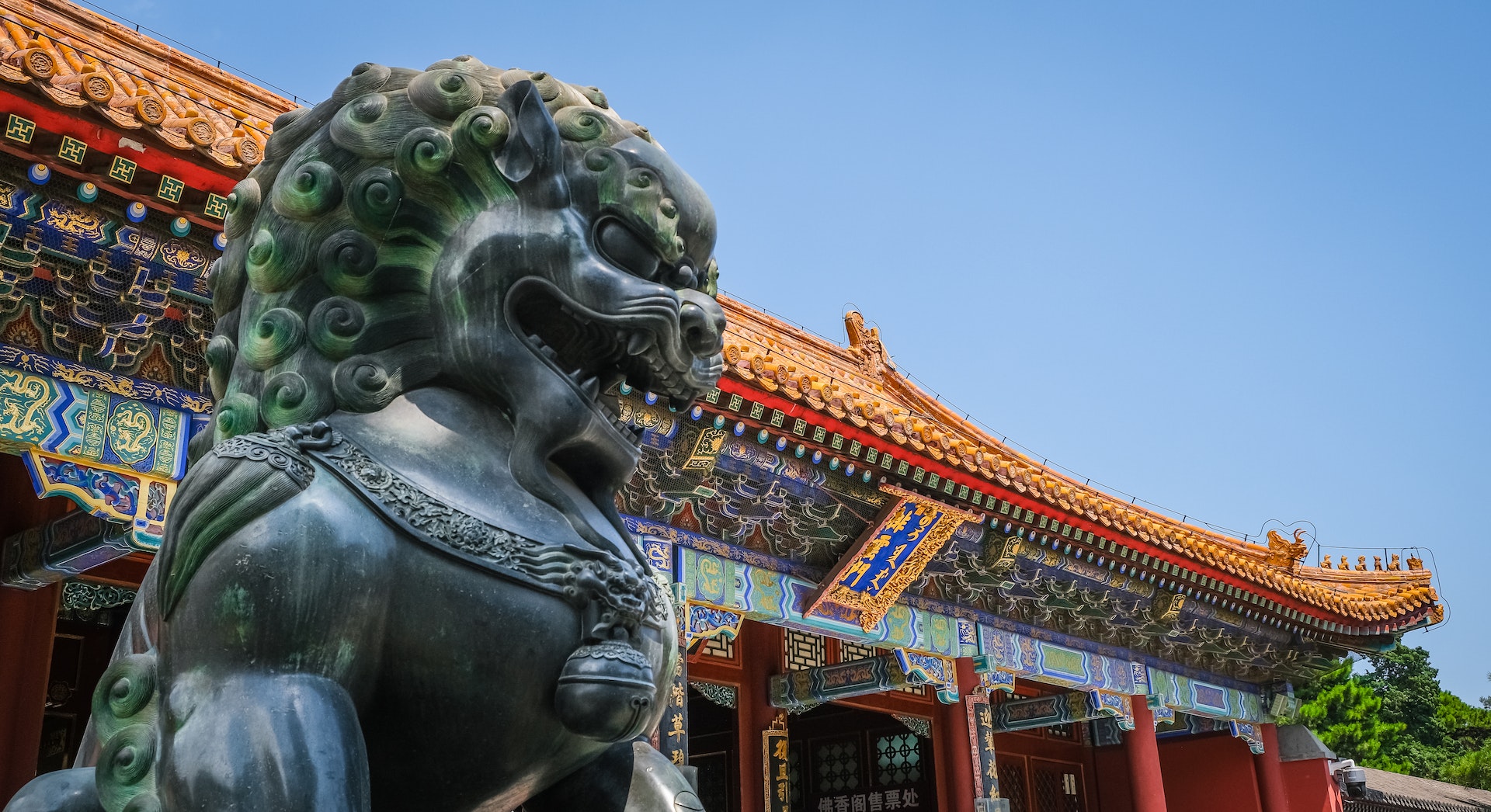
41. She Betrayed Her Nephew
After she resumed Regency in 1898, Cixi had Emperor Guangxu declared a “total disgrace” and said that he was unfit to rule as an emperor. He was forcibly taken to a small island that was attached to the Forbidden City by a single causeway, meaning that he was basically under house arrest. Suffice it to say that the Emperor's rule was over. Cixi was back in the game. Unfortunately, her return would be anything but glorious.
42. She Made Some Grave Mistakes
When Cixi regained power, she immediately made an enormous error. She supported the Boxer Rebellion. This social movement arose because a large faction of China didn't want foreign powers, including Christian missionaries and converts, invading their country. Cixi sided with the rebels, believing it to be in the best interest for China. Unfortunately, she was very wrong.
43. She Paid For Her Errors
A foreign coalition took over Beijing and put an end to the Boxer Rebellion. The casualties were staggering, included over 19,000 civilians, 2,500 foreigners and 20,000 Boxers and Chinese soldiers. Cixi herself was terrified—the once-indomitable Empress dressed up as a peasant and fled from Beijing with her nephew, the disgraced Emperor, in tow.
44. She Continued To Rule
The Allied Powers decided that a weak Chinese ruler would be to their advantage. So, they offered Cixi peace on their terms: She would apologize for supporting the Boxers, pay the countries affected by the Rebellion, and let international armed forces in Beijing. In return they would not seize any more territories. Although her advisers felt the terms were unfair and humiliating, Cixi was practical. She agreed, and returned to Beijing with the Emperor.
45. Her Curtain Fell
By the time of this concession, Cixi was tired. She was in her 70s and had spent her entire life embroiled in court politics and a major work-life imbalance. Cixi woke up at five every single morning and worked the entire day. And so, after a lifetime of drama (and of course, a full day of work), Cixi breathed her last in 1908. She was 73. On her final day, she installed yet another child, two-year-old Puyi, as the new Emperor. But wait, what happened to Cixi's nephew, you remember, the disgraced Emperor? Strap in...
46. A Final Rumor Followed Her
It turns out that Cixi's nephew, the Guangxu Emperor, had passed just one single day before Cixi breathed her last. If you're wondering if that timing is a little suspicious, you're not alone. There were rumors that she may have had a hand in his demise—especially when people learned that the ex-Emperor did not die of natural causes.
47. Her Nephew Faced A Dark Fate
When China discovered that the Emperor had been poisoned, all fingers pointed towards Cixi. People believed that she had not wanted him to rule in her absence and therefore she put an end to his story. No one can say for sure if that is true, but a 2008 test proved that his remains contained a level of arsenic that was 2000 times more than is usual.
48. She Didn't Rest In Peace
Cixi had her tomb built more than a decade before her passing. It was a complex containing “temples, gates and pavilions” and gold and gilded ornaments. Sadly, a warlord and his army destroyed it in 1928. Then they served up a final insult to Cixi. They broke open her coffin and took a giant pearl that had been placed in her mouth to prevent her body from disintegration, according to ancient Chinese custom. Thankfully, the Chinese government restored the tomb, but not until many years had passed.
49. She Was A Rebel From The Start
Looking back, it makes sense that Cixi didn't live out the usual meek feminine existence. Her ancestors, the Manchus, valued women way more than other clans. For starters, the Manchus forbade the archaic (and incredibly painful) tradition of foot-binding, and women had more of a voice in their culture. With this background, it's no surprise that Cixi climbed to the top of Imperial China, no matter what it cost her.
50. The World Remembers Her
Although she was initially considered a “devious despot” who ruined China, historians have sifted through the facts of her reign and realized that she was not as bad as she has been portrayed. Many of the scandals attributed to Cixi were just rumors. There is no denying that she inherited a country rife with problems and did her best to make things better.

